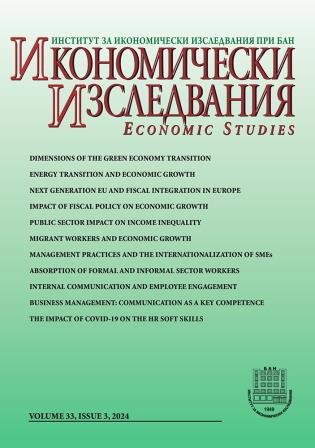Next Generation EU and Fiscal Integration in Europe
Next Generation EU and Fiscal Integration in Europe
Author(s): Nelly PopovaSubject(s): Economy, National Economy, Public Finances
Published by: Институт за икономически изследвания при Българска академия на науките
Keywords: European Union; Next Generation EU; fiscal integration; public sector functions; fiscal federalism
Summary/Abstract: The creation of Next Generation EU in response to the COVID-19 pandemic was a significant milestone in the European integration project. NGEU is an innovative financial instrument with the ambitious tasks to boost economic recovery and to finance long-term investments, thus raising the question if it can be viewed as a common fiscal capacity. The aim of the present article is to analyse in detail the structure of NGEU expenditure from the perspective of the public sector's three main functions (allocation, redistribution and stabilisation) and to draw conclusions about whether this instrument increases the EU’s capacity to perform them. After a concise literature review of the main arguments in favour of a supranational fiscal capacity, the article examines in detail the expenditure side of NGEU’s main component, the Recovery and Resilience Facility. It is concluded in the article that NGEU increases the EU’s capacity to perform the redistribution function and to some extent the allocation function. However, it cannot be viewed as a macroeconomic stabilisation mechanism. The article discusses several challenges arising from the establishment of the fund.
Journal: Икономически изследвания
- Issue Year: 2024
- Issue No: 3
- Page Range: 46-64
- Page Count: 19
- Language: English

